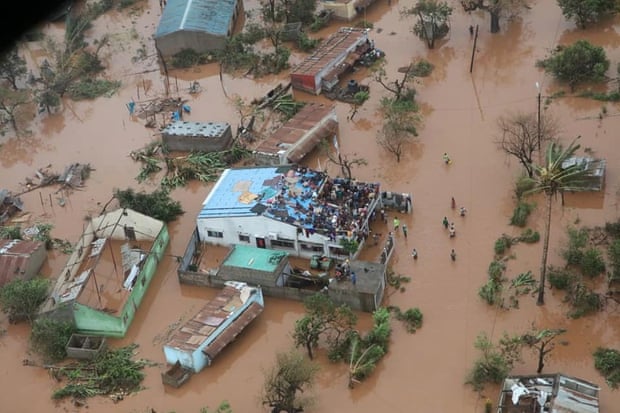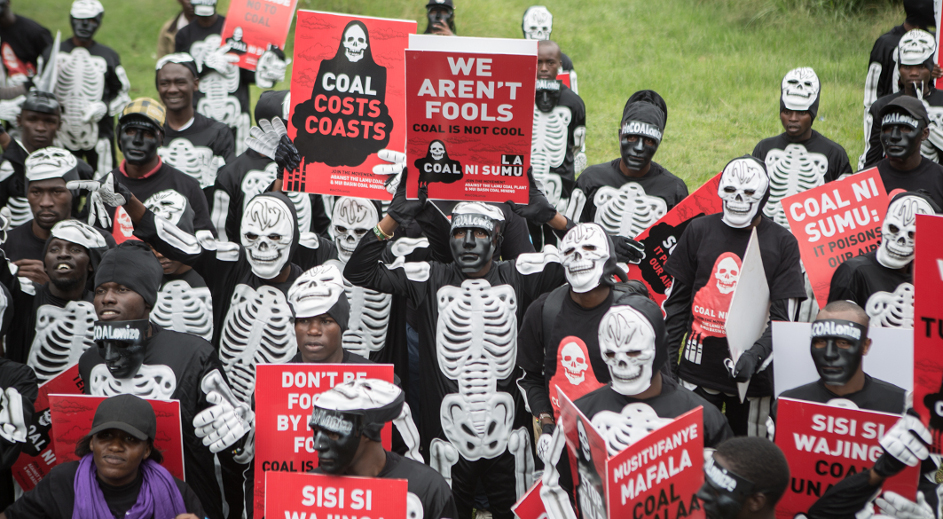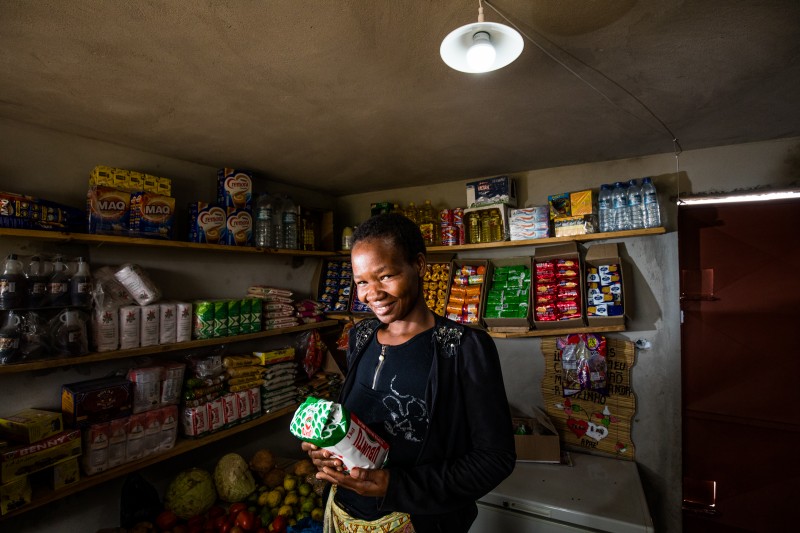|
Algeria
Angola
Benin
Botswana
Burkina Faso
Burundi
Cameroon
Cape Verde
Central Afr. Rep.
Chad
Comoros
Congo (Brazzaville)
Congo (Kinshasa)
C�te d'Ivoire
Djibouti
Egypt
Equatorial Guinea
Eritrea
Ethiopia
Gabon
Gambia
Ghana
Guinea
Guinea-Bissau
Kenya
Lesotho
Liberia
Libya
Madagascar
Malawi
Mali
Mauritania
Mauritius
Morocco
Mozambique
Namibia
Niger
Nigeria
Rwanda
São Tomé
Senegal
Seychelles
Sierra Leone
Somalia
South Africa
South Sudan
Sudan
Swaziland
Tanzania
Togo
Tunisia
Uganda
Western Sahara
Zambia
Zimbabwe
|
Get AfricaFocus Bulletin by e-mail!
Format for print or mobile
USA/Global: Green New Deal Can and Must Be Global
AfricaFocus Bulletin
January 27, 2020 (2020-01-27)
(Reposted from sources cited below)
Editor�s Note
July 2019 was the hottest month ever recorded worldwide, as a wide swath of the continental United States sweltered with heat indexes of over 100� F. This northern hemisphere summer also saw unprecedented heat waves in Europe and in the Arctic, from Alaska to Siberia. Greenland�s glaciers were melting at a unprecedented rate.
Add in more frequent storms, flooding and wildfires, and the scale of the crisis is harder and harder to ignore, even in the United States, where climate denialism has been more prevalent than in any other major country.
This AfricaFocus Bulletin is the second in a series exploring the potential for a paradigm shift from foreign policy to global policy in debate about the United States role in the world. Unlike most AfricaFocus Bulletins, the essays are not reposted material but original reflections in this U.S. presidential election year, co-authored by your editor and by experienced activist and policy analyst Imani Countess. Many AfricaFocus readers will know Imani from her previous work, but others will not, so a brief introduction is in order.
Imani Countess is currently an Open Society Fellow working on economic inequality, and particularly the impact of illicit financial flows on Africa and how to mobilize pressure to curb U.S. involvement as a major player in this global unjust system. I first worked closely with Imani in 1991-1997 when she was executive director of the Washington Office on Africa and the Africa Policy Information Center and I was a part-time consultant working on policy analysis, writing, and electronic communication tools for the twin organizations. Since then, we have kept in touch and often collaborated on research and writing projects, as she has played key roles at the African Development Foundation, the American Friends Service Committee, TransAfrica Forum, and the Solidarity Center. She also currently serves as vice chair of the board of directors of ActionAid USA.
Our goal in this writing project is not to lay out a comprehensive vision of U.S. foreign policy or U.S. policy toward Africa. It is rather to suggest that the time is ripe for re-visioning how we think about the U.S. role in the world, and that such rethinking is essential for any fundamental changes in policy towards Africa or towards any of the global issues on which Africa both suffers greatest vulnerability and has significant potential for leading global rethinking about solutions.
Special thanks to Catherine Sunshine for her indispensable role in editing these essays. And thanks to the friends and colleagues who have provided helpful feedback as we have tried to put these ideas into words. To date these include Jim Cason, John Cavanagh, Gail Hovey, John Feffer, Zeb Larson, Prexy Nesbitt, Anita Plummer, Elizabeth Schmidt, and Brandon Wu.
And thanks to other readers in advance for passing this on to friends and colleagues not likely to be subscribers to AfricaFocus, as well as for your own feedback on how to make such a shift in our collective discussions.
The first part of the series, laying out the framework for the series is also being published today and is available at http://www.africafocus.org/docs20/usa2001.php.
|
Green New Deal Can and Must Be Global
by William Minter and Imani Countess*
* William Minter is the editor of AfricaFocus Bulletin. Imani
Countess is an Open Society Fellow focusing on economic inequality.
This essay is the second in a multipart series beginning in January 2020. Thanks to Catherine Sunshine for her editing of the essays in this series.
July 2019 was the hottest month ever recorded worldwide, as a wide swath of the continental United States sweltered with heat indexes of over 100� F. This northern hemisphere summer also saw unprecedented heat waves in Europe and in the Arctic, from Alaska to Siberia. Greenland�s glaciers were melting at a unprecedented rate.
Add in more frequent storms, flooding and wildfires, and the scale of the crisis is harder and harder to ignore, even in the United States, where climate denialism has been more prevalent than in any other major country.
The Trump administration made its withdrawal from the global climate agreement official, but not before using its membership to block any meaningful progress at the 25th international climate summit in Madrid in December 2019. Nevertheless, the climate of opinion in the United States is shifting rapidly, spurred in part by the unprecedented wave of activism spearheaded by the youth-led Sunrise Movement. Public opinion polls show that a majority of registered US voters now favor the ambitious Green New Deal.
New social movements have expanded the horizon for debate on other issues in recent years: #OccupyWallStreet and the 2015 Sanders campaign on economic inequality, #BlackLivesMatter on racial inequality, #MedicareforAll on the right to health, and #MeToo on gender equality, to cite only a few. Yet the #GreenNewDeal and the climate crisis are the issue with the most easily understood links between �domestic� and �foreign� components.
In the twentieth century, mainstream U.S. environmental organizations paid little attention to environmental racism, despite research and activist pressure highlighting the unequal impacts of environmental damage along racial and class lines. In the twenty-first century, and particularly since Hurricane Katrina submerged New Orleans in 2005, public awareness has grown substantially. Today�s climate activists are homing in on climate justice issues, emphasizing how the climate emergency hits the most vulnerable populations with greatest force. Existing inequalities by race, class, and gender make recovery from disasters more difficult for minority communities, the poor, and women. Women have fewer economic resources, face higher risks such as gender violence in disasters, and are left with greater responsibilities for care of children and the aged. And youth face a future with frighteningly greater climate risks.
All of these inequalities are accentuated at a global level, as illustrated by events in 2019.
Cyclone Idai struck Mozambique and neighboring countries in March 2019, leaving over 1,200 dead and some 2 million acres of crops destroyed by floods. Meanwhile, storms in the U.S. Midwest caused floods just as farmers were preparing to sow their fields. In each case the impact was devastating. Yet the toll was far greater in Mozambique, and the capacity to recover far less. Almost 150,000 people were displaced, and by the end of the year many were still in resettlement camps without permanent housing. In such contexts, in addition to the general misery, women and girls are particularly vulnerable to predators and opportunists.
|

Cyclone damage in Buzi, Mozambique. Cyclone Idai, 2019. Credit: Mozambique National Institute for Disaster Management.
|
The rich countries must step up
The�causal connection between climate change�and extreme weather events is clear. The need for climate actions in both poor and rich countries is beyond dispute. These include mounting a sustainable response to crises, increasing resilience to the effects of climate change through adaptation, and rapidly accelerating action to cut greenhouse emissions from fossil fuels.
Whose responsibility should this be? At the 1992 Earth Summit in Rio de Janeiro, the first global climate agreement affirmed that�much of the burden should be shouldered by the wealthy countries:
The Parties should protect the climate system for the benefit of present and future generations of humankind, on the basis of equity and in accordance with their common but differentiated responsibilities and respective capabilities. Accordingly, the developed country Parties should take the lead in combating climate change and the adverse effects thereof.
The global climate agreement signed in Paris in December 2015 reconfirmed that, while all countries have obligations to act, rich countries have special responsibility for reducing greenhouse gas emissions and coping with the impact of worldwide climate disasters. Unfortunately, the agreement itself � which relies entirely on nonbinding voluntary pledges called Nationally Determined Contributions (NDCs) � does not include any provisions to ensure that rich countries meet this responsibility. According to analyses by civil society, rich country NDCs fall far short of what their �fair share� of global climate action should be.
Despite this, Donald Trump insisted that the Paris Agreement was �unfair� to the United States. Although the Trump administration has formally confirmed U.S. withdrawal from the agreement, to be fully effective in November 2020, all U.S. Democratic presidential candidates are opposed to U.S. withdrawal. But the next major opportunity to commit formally to stronger global action will be at COP26 in November 2020, before a newly elected U.S. president could take office.
In both its cumulative historical and current per capita emissions, the United States bears a major share of responsibility for the climate crisis. From the first use of industrial fossil fuels in 1750 through 2017, the United States contributed 399 billion tons of carbon dioxide�almost twice the 200 billion tons emitted by China. Germany, the United Kingdom, and India contributed 91 billion, 77 billion, and 49 billion tons, respectively, while the entire continent of Africa contributed only 43 billion tons (see the convenient summary charts from Our World in Data, a project of the Global Change Data Lab).
In carbon dioxide emitted per capita, with the exception of oil-rich Gulf states such as Saudi Arabia and Qatar, the United States also led the world in 2017, with 16.24 tons per person per year. Next in line were Japan with 9.45 tons, South Africa with 8.05 tons, and China with 6.98 tons. In contrast, most African countries, with the exception of major oil-producing countries, contributed less than half a ton per person per year.
Whether it falls under the label of Green New Deal or not, any major advance in the United States to curb use of fossil fuels and accelerate the transition to renewable energy will have significant impact worldwide. For U.S. climate activists, the highest imperative is making an impact on U.S. policy. Yet it is also essential from the start to put that campaign in global context and to acknowledge the initiatives being taken by activists around the world.
Grassroots climate actions
Most climate activists have come to understand, at least in principle, that it is the most vulnerable groups that suffer the greatest impact from the climate crisis, whether their disadvantages come from nationality, class, race, gender, or age. This disproportionate impact is reflected in the leadership and rank-and-file of climate activist movements around the world.
Women, particularly women of color and young women, are no longer only leaders behind the scenes, as they were in the civil rights movement and many other historical social moments. Instead they have become among the most prominent and visible spokespeople for climate change activism. African women activists have taken the lead in environmental struggles on the continent, such as the resistance to oil pollution in the Niger Delta and to the proposed coal plant in Lamu, Kenya.

Greta Thunberg, 16, sits next to Tokata Iron Eyes, 16, during a panel at the Pine Ridge Reservation in South Dakota. Photo: Courtesy of Lakota People�s Law Project. Credit: http://earther.gizmodo.com.
|
The climate strike initiated by Swedish activist Greta Thunberg has gained supporters on every continent, including North America and Africa. While Thunberg has the most visible media presence, countless other activists, many of them indigenous, have been leading protests in various countries for years. Native American communities in the United States have been on the frontlines in seeking to block oil pipelines, linking these struggles to their own centuries-long commitment to protecting land and water. Teenage Lakota activist Tokata Iron Eyes spoke with Thunberg at the Pine Ridge Reservation in South Dakota in October 2019. �Indigenous people have been leading this fight for centuries,� Iron Eyes told the audience.
Minimizing future climate damage depends on stopping the use of fossil fuels, most urgently coal. In China and the United States, as well as Western Europe, the decline of coal is well under way, a response to its inefficiency and the health damage from air pollution. But these major economies are also still financing and exporting coal technology. In June 2019, local activists in Kenya won a national court ruling that blocked a proposed Chinese- and American-backed coal plant in Lamu, on Kenya�s coast. Significantly, this was the result of local activist initiatives in Lamu, bolstered by strong links with national and international climate activist groups.
|

One of many #deCOALonize demonstrations in Kenya in recent years. "Coal ni sumu" means "Coal is poison." Credit: http://www.decoalonize.org/.
|
Kenya is also one of the countries leading in innovative forms of renewable energy. Most popular is off-grid solar energy, which is now lighting homes for millions of rural consumers in Africa and South Asia who otherwise would have no access to electricity. Some 5 million households in Africa and South Asia have enough power to serve appliances as well as simple lighting. Growth is rapid, but the potential market of people lacking access to electricity worldwide is still over 800 million. International donors, including the US Agency for International Development (USAID), are supporting off-grid solar, although Obama�s Power Africa Initiative primarily backed fossil fuel projects using natural gas.
There is great potential for further innovation in renewables. For example, cooking with solar electricity instead of wood or charcoal could help curb deforestation and prevent deaths caused by pollution from indoor cooking fires. To accelerate innovation, there is a need for collaborative transnational research that links technologically advanced countries with local researchers.
|

A solar-powered lamp allows this shopkeeper to stay open at night. Credit: Solarworks!
|
Implications for multilateral and bilateral foreign policy
If the United States were to give priority to the climate crisis, this would not only have implications for global climate policy; it would also affect our foreign policy more narrowly defined, reshaping bilateral relations with both large and small countries.
The effect of activist mobilization and lobbying is already apparent in the Democratic debate, with the campaign plans of both Bernie Sanders and Elizabeth Warren being particularly attentive to international obligations. When the Sunrise Movement decided this month to endorse Bernie Sanders, its statement also praised Elizabeth Warren, and its scorecard rated both candidates highly. Both candidates recognize that global commitments are essential to their visions of a Green New Deal. Sanders's plan envisages a $200 billion commitment to the UN�s Green Climate Fund, while Warren�s plan includes $100 billion for a Green Marshall Plan.
Climate activists realize, of course, that implementing such ambitious plans will require not only presidential action but also parallel legislation from Congress. They already have congressional allies, who have introduced legislation affirming a 10-year commitment to fund the Green Climate Fund at levels appropriate to the international need. But the fate of such legislation, and its funding at a level approaching either Sanders�s or Warren�s proposals, depends on changing the composition of Congress. That is why activists are campaigning not only for Democratic victories in the Senate and the House, but also in the primaries for candidates who are champions of action on climate.
In bilateral relations as well, taking climate into account would have consequences. For example, the effects of Trump�s trade war have increased the costs of renewable energy goods dependent on U.S.-China trade. As rival global powers, the United States and China will inevitably have tensions in their relationship. But the potential for collaboration on renewable energy could be a strong countervailing force and a striking contrast to U.S.-Chinese collaboration on the climate-destroying Lamu coal plant. Corporations and scientists in different countries often collaborate even as they compete, and government policies can make working together either easier or harder. Among various factors that could put the brakes on a warming planet, few are as critical as a cooperative relationship between the U.S. and China, as noted by Wood Mackenzie Energy Transformation Outlook in August 2019.
Similarly, a comprehensive U.S. strategy aimed at curbing the use and production of fossil fuels in favor of renewable energy could lessen the intense geopolitical focus on Middle Eastern oil producers such as Saudi Arabia. This could potentially ease, though by no means solve, the complexities of that region. Unlike fossil fuels, whose distribution rewards some countries and penalizes others, renewable energy options such as solar and wind are more evenly distributed around the world. Moreover, when one country makes more use of sun and wind, it benefits the entire world as well. Mutually beneficial transfer of technology could take priority over competing for sales and access to fossil fuels.
Admittedly, smart green growth, with its heavy reliance on information and communication technologies, also makes use of raw materials such as cobalt and rare minerals, the scarcity of which poses its own problems. But those problems can be addressed, for example, by research into alternate battery technologies, which is already motivated by the shortage of cobalt and by public protests against human rights abuses in cobalt mining.
Maximizing new technologies requires political choices
Carlota Perez, in her pathbreaking studies of the role of technology in history, argues that a technological revolution based on prioritizing knowledge rather than material goods has the potential to address not only the climate crisis but also global inequality. This will only happen, Perez stresses, if states take the initiative in planning to maximize benefits to the wider society, instead of only considering profits to private enterprises. Advocates of the Green New Deal in the United States stress that this change requires paying attention both to those affected by the transition and to those who are particularly disadvantaged because of deeply rooted structural inequalities. Similarly, according to Perez, smart green growth will be impossible without a radical shift on a global level to involve the majority of the world�s population as both consumers and producers. �The technologies capable of driving a sustainable global golden age are available,� concludes Perez. �Unleashing them successfully requires an understanding of the historical moment and the willingness to make a clear socio-political choice.�
First, though, we have to build broad political support for such a choice. This requires us to understand not only the competing technologies of the past and future, but also the structural inequalities, both national and global, that have been violently imposed throughout history and that still shape the present. In the past decade, the United States has seen significant social movements emerge to confront the domestic inequalities of race, class, and gender. But the United States and other privileged countries have hardly begun to confront the parallel global hierarchies built on centuries of conquest, slavery, colonialism, and patriarchy. Understanding and contesting global inequality must go hand in hand with developing technological solutions to the climate crisis.
In the third installment in this series, we will look at how social movements are targeting rising inequality at both national and global levels, and how, as in the case of climate, transnational collaboration is an essential corollary to action within a single country.
AfricaFocus Bulletin is an independent electronic publication
providing reposted commentary and analysis on African issues, with
a particular focus on U.S. and international policies. AfricaFocus
Bulletin is edited by William Minter.
AfricaFocus Bulletin can be reached at [email protected]. Please
write to this address to suggest material for inclusion. For more
information about reposted material, please contact directly the
original source mentioned. For a full archive and other resources,
see http://www.africafocus.org
|
